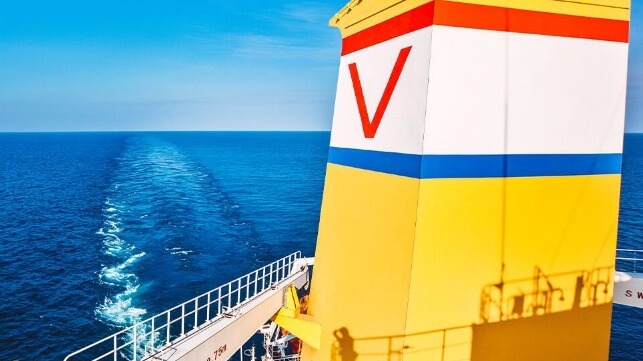Carbon Capture Validated for In-Service Ships to Meet CII Regulations

A new study using two in-service dry bulk carriers validated the technical feasibility of using carbon capture and storage technology as a measure to ensure compliance for existing ships with the IMO’s Carbon Intensity regulation. One of the biggest issues facing the shipping industry is finding a means for in-service vessels not to become stranded or devalued assets in the face of increasing emission regulations.
The study was launched using two bulk carriers in the fleet of Wah Kwong Maritime Transport, a Hong Kong-based ship owner with nearly 30 owned dry bulk carriers some dating back to 2009 and 2010. Qiyao Environmental Technology, a subsidiary of Shanghai Marine Diesel Engine Research Institute, developed the designs for a carbon capture and storage system working with Bureau Veritas
The CCS system was developed based on the design parameters of the vessels and customized to the ships. BV supported the project, from vessel selection to the design layout of the CCS system on board, certification, and cost analysis. BV reviewed the plans according to existing regulations and rules to ensure the safety of the vessels and equipment and validate that the carbon emission reduction targets are effectively achieved during the operation of the vessels.
According to the companies, laboratory tests showed the ability to capture over 85 percent of CO2 from the exhaust gas flow. The system is based on an organic amine solution that extracts CO2 from the exhaust gas before it is cooled into liquid form and stored in a low-temperature storage tank.
Using the CCS system they report enabled the two vessels to remain compliant by upgrading and maintaining their CII rating at a C level until 2030. Without the application of the CCS system, the vessel would have progressed to a D rating in the IMO’s program reducing their economic viability.
The study considered all aspects of retrofit space, operational impact, CAPEX and OPEX, as well as the upcoming EU ETS, to assess the future investment and revenue expectations for each vessel. Based on the design review, BV awarded an Approval in Principle (AiP) for the CCS system.
The companies note that carbon capture and storage technology has been available for several decades, mostly for use in industrial projects on shore, and only recently has started to be explored for use on in-service ships. They are continuing to optimize and upgrade the CCS approach and hope that the results of this study will encourage further studies and advance the implementation of CCS technology.
